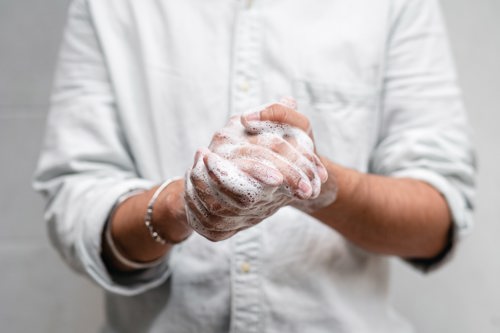
The global COVID-19 pandemic has shown businesses across Australia and the world the critical need for an effective infection control policy. Viral infections can spread quickly, impacting not only the people who work at a business, but also their family, friends and neighbours. Infection control policies reduce the likelihood that infections spread and multiply in the local community.
In June 2020, the Australian Department of Health had confirmed at least 7,335 positive cases of COVID-19 throughout the country. However, the situation across the globe is more severe, with Johns Hopkins University reporting over 7.6 million confirmed cases across the globe.
Now and in the future, businesses in the hospitality industry will be held to a higher standard of cleanliness. Effective infection control policies not only protect vulnerable groups, but also reduce the risk of irreparable damage to a brand's reputation.
Businesses should always consult official government resources when developing infection control measures. These six factors provide a firm foundation for keeping building occupants and guests safe and healthy:
1. Hand-washing
Rigorous hand-washing is one of the most important factors of infection control. Hand-to-person and hand-to-surface contact are common ways that pathogens spread from person to person. Employees should wash their hands frequently, especially in these circumstances:
Proper hand-washing follows a seven-step process:

2. Social distancing
Social distancing - the practise of staying at least six feet away from other people - has shown to be an effective way to reduce the spread of viral infections. Research conducted at the Universities of Kentucky and Georgia in the U.S. found that communities without social distancing guidelines had infection rates 35% higher than those with guidelines in place.
Placing signage throughout a build that explains social distancing best practises reduces the likelihood of people becoming infected. Floor stickers can indicate where people should stand when they are queuing.
3. Personal protective equipment (PPE)
Business staff, including cleaning personnel, should wear PPE when possible. Although PPE does not prevent 100% of infections, it greatly reduces the chances that pathogens spread from person to person. For example, cloth face masks can limit how far water particles travel when people speak.
It's important to note that disposable gloves are not a substitute for hand-washing. Gloves can just as easily move pathogens from one surface to another. Similarly, boot covers can prevent dirt and other debris from getting tracked from room to room, but most health organisations do not recommend them.
4. Cleaning and disinfection
Frequent cleaning is a key aspect of an infection control policy. In the hospitality industry, it is important to deeply clean any rooms that have been occupied by guests before another patron is allowed inside.
Disposable microfibre cloths are useful for removing dirt and pathogens from surfaces. In addition, flat mops can remove debris from the floor better than traditional wet mop heads. All cleaning equipment should be sanitised between uses to further limit the spread of pathogens between rooms. In extreme cases, cleaning crews may need to use specialised equipment such as ultra-low volume foggers.
5. Laundry care
Laundry and other textiles should be handled with care, especially after use by a guest. Housekeepers should consider wearing gloves when handling used linens. Gloves should be disposed of afterwards. Used linens can be transported to in-house laundry facilities in a collapsible X-cart. If linens are sent away for cleaning, they should be placed in sealed bags.
6. Reporting
If there is a concern that an employee or guest may be sick or infected, management should call the local state or territory helpline. Public officials will give advice on next best steps. It's important to record the names of anyone who came into contact with the infected person in case they are required to enter quarantine. Safe Work Australia has guidelines for managing suspected infections at businesses.
With durable cleaning equipment, businesses can effectively reduce the risk of infection. Browse our product catalogue to learn more.